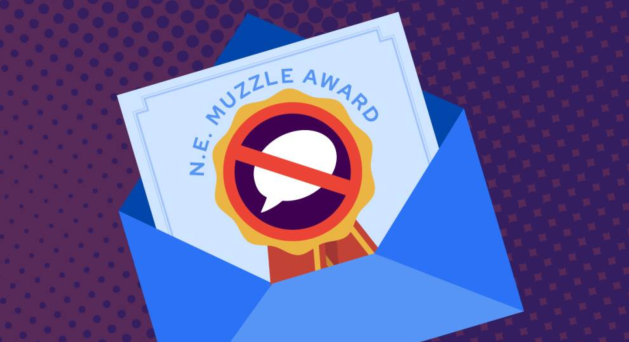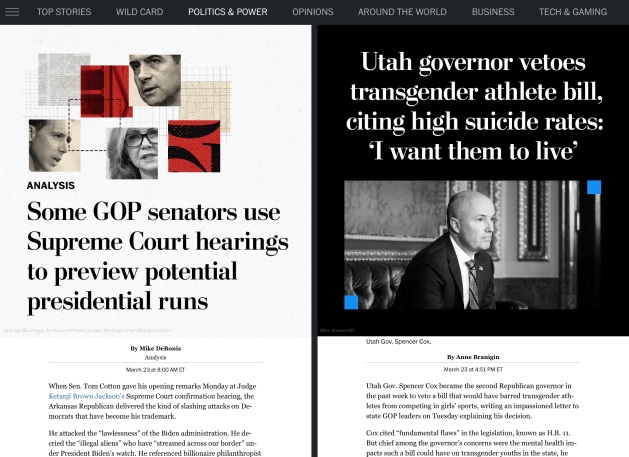
Jeff Bezos in 2018. Photo (cc) by Grant Miller for the George W. Bush Presidential Center
Previously published at WGBHNews.org.
Jeff Bezos is our most elusive famous billionaire. With his shaved head and gnomish smile, it sometimes seems like he’s perpetually in our midst. Yet unlike Mark Zuckerberg, who’s forever explaining himself and his intentions, or the late Steve Jobs, always ready with a boast or a putdown, Bezos only rarely puts his thoughts into words.
When he does, he is intentionally obscure. “Bezos made a statement saying all the correct and anodyne things, but he was not terribly revealing,” David Remnick wrote shortly after Bezos announced he would buy The Washington Post. You could say that’s the way Bezos has operated at Amazon, the company that made him the world’s richest person. Or how he has lived his life.
Yes, he was forced to reveal some of his most intimate secrets when The National Enquirer reported that he was having an affair and threatened to publish embarrassing photos. But even then, he acted so that he could disclose his secrets on his own terms, thus denying his enemies the satisfaction of humiliating him. It worked. If there really were any photos, they have not surfaced.
Now both The New Yorker and The Atlantic have weighed in with lengthy pieces aimed at answering the question of what drives Amazon — and Bezos. The two articles, which run more than 13,000 and 11,000 words respectively, take very different approaches.
In The New Yorker, Charles Duhigg presents us with a classic business story, deep on details, both the good and the bad — some of which is very bad indeed, such as the company’s brutal work environment and its carnivorous relationship with companies that sell products on its site. Much of the ground Duhigg covers is familiar to those of us who’ve obsessed over Amazon. The most novel insight Duhigg offers is that Amazon, based as it is on a set of ideas (Bezos’ famous 14 Leadership Principles), can be likened to General Motors in its early decades — nimble and adaptable enough to enter and dominate industries entirely unrelated to its original mission of selling books.
Amazon Web Services, the server farm that powers organizations from Apple to the CIA, would be a paradigmatic example of that, but so would the rise of Amazon Prime as a media service that offers television, movies, music and, yes, one of the world’s great newspapers. By contrast, companies like Google and Facebook are similar to Ford in those early years, tied to search and social networking for the bulk of their revenues as firmly today as they were when they were founded. Amazon, like General Motors before it, is a “process company.” Google, Facebook and Ford are “product companies.”
All this is too mundane for Franklin Foer, who, writing in The Atlantic, offers a fanciful theory of Bezos. What really motivates Bezos — what pushes him to keep earning more and more money, far more than any person, or any 10,000 people, would ever need — is that he wants to go to outer space. Or, to put it more realistically (OK, not that much more realistically), he wants humanity to colonize space before we have made the earth entirely uninhabitable. Thus the founding of his rocket company, Blue Origin, which, Foer notes, Bezos has called his “most important work.” Foer adds, “With his wealth, and the megaphone that it permits him, Bezos is attempting to set the terms for the future of the species, so that his utopia can take root.”
Bezos does not like to talk to journalists. He rarely gives interviews — not to Brad Stone, the author of a 2013 book about Amazon called “The Everything Store.” Not to Duhigg. Not to Foer. Not even to The Washington Post, although he’s been quoted when he’s addressed the staff or participated in events such as a public conversation with the Post’s executive editor, Marty Baron.
And not to me. When I was researching my 2018 book on a new breed of wealthy newspaper owners, “The Return of the Moguls,” I spent months sending emails and snail-mails to Bezos and to various other people at the Post and at Amazon. The closest I got was a brief phone conversation with a top Amazon official who said he’d talk with Bezos about my request. No dice. A colleague even suggested that I fly to a place where Bezos was giving a speech and try to ambush him afterwards for a few quotes.
I decided not to. First, I had no confidence in my ability to stake out the right spot so that I could accost him as he was passing by. Second, I had even less confidence that he would stop and say anything — at least anything that wasn’t “correct and anodyne.” Other wealthy newspaper owners, including John Henry of The Boston Globe and Aaron Kushner, formerly of the Orange County Register, spoke with me at length. But Bezos proved as elusive with me as he does with everyone else.
So what’s next for Bezos and Amazon? At cultural moment when our love affair with all things tech is turning sour, the next few years could be unpleasant. Duhigg traces the history of antitrust law, explaining that, in recent decades, the government lost interest in breaking up monopolies unless they engaged in behavior that resulted in higher prices for consumers. Since Amazon’s stranglehold on the digital marketplace has resulted in lower prices, there was no reason to think there was a problem. Same with Google and Facebook, which, after all, are free.
Now, though, the antitrust worm is turning. Older ideas that monopolies are harmful to the economy regardless of their effect on prices are being embraced by everyone from antitrust regulators in President Trump’s Justice Department to Democratic presidential candidate Elizabeth Warren, who has vowed to break up the tech monopolies. And, as we know, Trump has attacked Amazon repeatedly because of his fury over how the Post has covered him.
“We may be at a breaking point now,” writes Duhigg, who quotes the historian David Farber as telling him: “It’s like the 1880s or the 1930s all over again. The pressure is going to continue building, the powerful are going to continue being watched and criticized and gawked at, until something pops.”
What Bezos has always had going for him was his embrace of the long view, even unto the stars and beyond. “If you look at why Amazon is so different than almost any other company that started early on the internet, it’s because Jeff approached it from the very beginning with that long-term vision,” Brad Stone quotes Bezos’ friend Danny Hillis as saying in “The Everything Store.” “It was a multi-decade project. The notion that he can accomplish a huge amount with a larger time frame, if he is steady about it, is fundamentally his philosophy.”
Will Amazon keep getting bigger and bigger? Or are we at peak Amazon (and Google and Facebook), poised on the brink of a future that may look very different from what has come before? Bezos may still embrace the long view, but he’s 55 now, an age when most people in his position begin thinking about their legacy.
No doubt Bezos will continue to say correct and anodyne things. But as Duhigg and Foer make clear, he now faces a challenge unlike anything he’s had to deal with — the challenge of surviving the political and culture wars that have sprung up around him and, ultimately, becoming a good corporate citizen.
Talk about this post on Facebook.
 I am thrilled to report that my first book is back in print — and this time there’s an e-book to go with it.
I am thrilled to report that my first book is back in print — and this time there’s an e-book to go with it.






